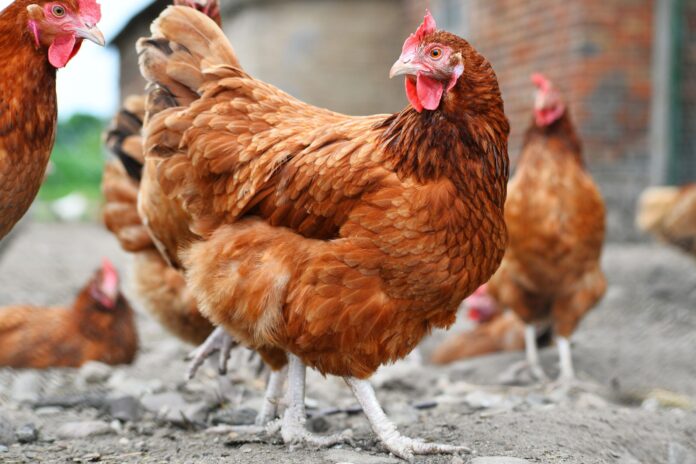
Keeping Chickens Happy and Healthy in a Coop: Tips and Tricks
Raising chickens can be a rewarding experience, whether you’re doing it for eggs, meat, or just as pets. However, it’s important to keep your chickens happy and healthy in order to ensure they are productive and content. Keeping chickens in a coop provides them with a safe and comfortable environment, but there are some important tips and tricks to keep in mind to ensure they thrive.
1. Provide Adequate Space
Chickens need plenty of space to move around, stretch their wings, and forage for food. Overcrowding can lead to stress, aggression, and disease, so it’s important to provide at least 2-3 square feet of space per chicken in the coop. If you have a small coop, you can also allow your chickens access to an outdoor run during the day to give them more space.
2. Keep the Coop Clean
A clean coop is essential for the health and well-being of your chickens. Regularly clean and remove soiled bedding, droppings, and any leftover food to prevent the build-up of bacteria and parasites. This will help reduce the risk of diseases such as coccidiosis and infections like bumblefoot. Additionally, ensure there is good ventilation in the coop to prevent moisture build-up, which can also lead to health issues.
3. Provide Fresh Water and Nutritious Food
Chickens need a constant supply of fresh, clean water to stay healthy and hydrated. Make sure to change the water daily and keep the containers clean to prevent contamination. When it comes to food, chickens require a balanced diet that includes a mixture of grains, seeds, and protein. Provide them with high-quality commercial feed, supplemented with kitchen scraps, fruits, and vegetables to keep them healthy and happy.
4. Give Them Things to Do
Chickens are naturally curious and active animals, so it’s important to provide them with things to keep them entertained. This can include hanging treats, such as cabbage or seed blocks, for them to peck at, or providing them with things to scratch and perch on. You can also scatter food and treats around the coop to encourage their natural foraging behavior.
5. Protect Them from Predators
Predators such as foxes, raccoons, and birds of prey pose a constant threat to chickens, so it’s important to secure the coop to keep them safe. Use wire mesh to cover openings and doors, and install locks and latches to prevent predators from gaining access. Additionally, consider using motion-activated lights or even a guard dog to deter predators from approaching the coop.
6. Monitor Their Health
Regularly inspecting your chickens for signs of illness or injury can help you catch any health issues early on. Look for symptoms such as lethargy, loss of appetite, abnormal posture, or discolored droppings. Providing chickens with regular health checks and vaccinations can also help prevent diseases and ensure they remain healthy.
7. Provide Adequate Nesting Boxes
If you’re keeping chickens for eggs, it’s important to provide them with comfortable and secure nesting boxes. This will encourage them to lay eggs in a clean and protected environment. Make sure the nesting boxes are lined with clean bedding and are located in a quiet and dark area of the coop to make the chickens feel secure.
8. Consider Their Social Structure
Chickens have a social hierarchy, and it’s important to provide them with enough space and resources to establish their pecking order without causing fights or stress. If you have multiple chickens, consider providing multiple feeding and watering stations to prevent competition and ensure all chickens have access to food and water.
9. Protect Them from Harsh Weather
Extreme weather conditions can be stressful for chickens, so it’s important to provide protection from the elements. Ensure the coop has a strong roof and walls to keep out rain and wind, and provide insulation during cold weather. In hot weather, provide shade and access to cool, fresh water to prevent heat stress.
10. Handle Them Gently
If you need to handle your chickens for any reason, such as health checks or egg collection, it’s important to do so gently and calmly. Avoid chasing or grabbing them, as this can cause stress and injury. Instead, approach them calmly and confidently, and try to pick them up from underneath to prevent flapping and struggling.
In conclusion, keeping chickens happy and healthy in a coop requires a combination of proper care, environment, and attention. By providing them with adequate space, clean living conditions, nutritious food, and protection from predators and harsh weather, you can ensure your chickens thrive and provide you with fresh eggs, meat, or just companionship. With these tips and tricks in mind, you can create a safe and comfortable environment for your chickens to thrive in.

















